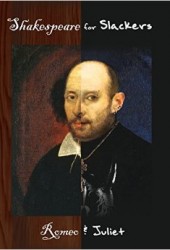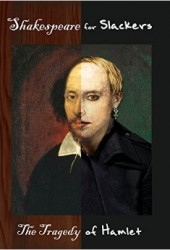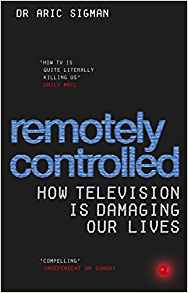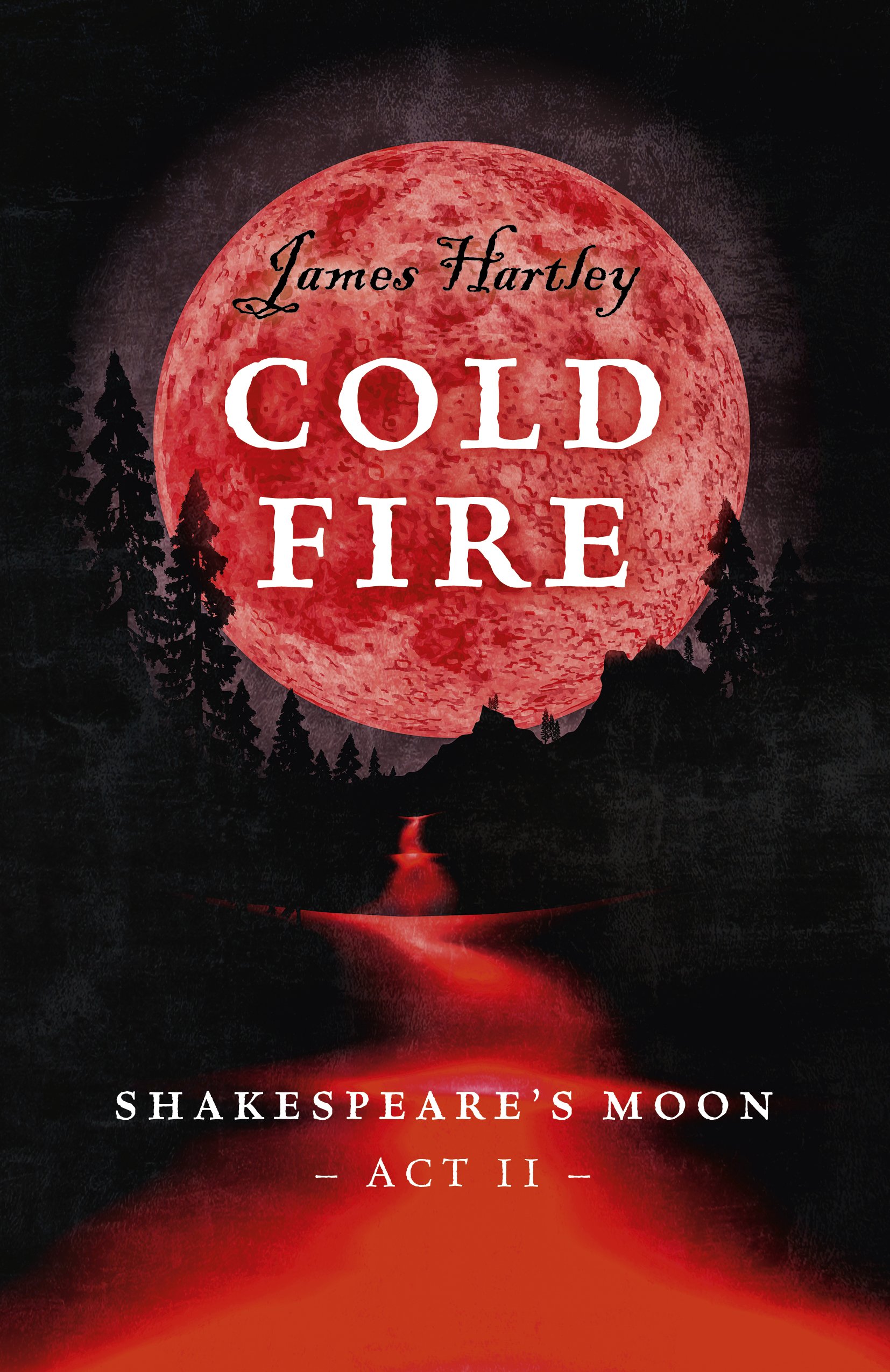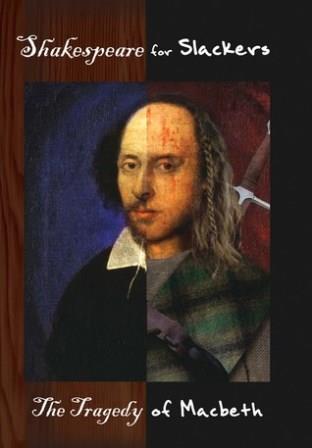
‘Shakespeare translated…vandalised, brutalised and outright demolished…Why? Because we can.’
Such is the bold claim made by Aaron Kite and Audrey Evans, who have ‘interpreted’ Shakespeare’s language to transform ‘Macbeth’ into what ‘a few of us think he would have written if he were still around today, and if he sat around watching a lot of television.’ Hmm.
As a ‘resting’ English teacher* my interest was piqued – could this be a useful introduction to Shakespeare for some of my more reluctant readers? Briefly, yes – and no.
Demolishing Shakespeare
Within the first few lines of the play I was wincing at the loss of meaning and change of tone. The powerful witches become grotty ‘hags’; the tumultuous thunder and lightning become ‘sucky weather’; and the strong statement ‘I come Graymalkin’ is “translated” to mean ‘Does woogums want a treat?’ By the end of Act 1 Scene 1 my head was spinning. The witches became inept, the imagery I was used to guiding classes to notice had evaporated and I felt that the text was a startling exemplar of the way in which modern language can elide meaning and prevent meaningful communication.

The kind of ‘translation’ you won’t find employed here.
But. I have spent years studying and teaching Shakespeare’s ‘Macbeth’ (or at least…what we think Shakespeare wrote) and in doing so have gathered a fairly fixed set of meanings about me. My initial horror at their destruction** was gradually replaced by increasing awareness that this is not a rigid text but a play, designed to be performed and capable of being played in many ways. Of course the witches can be presented as ineffectual old dears; of course Macbeth can be played as an overgrown child.
And actually, the modern language used in Act 1 Scene 2 conveys the casualness of killing the traitors and handing the treasured post, Thane of Cawdor, to Macbeth far more clearly to a modern reader than the original language does.
Building a comedy
Of course, it is possible to update the language without completely transforming the genre…but it seems the authors thought ‘where’s the fun in that?’
So instead of the sense of wonder and authority readers might infer from Macbeth’s original instruction to the weird sisters (‘Speak, if you can. What are you?’), we are treated to a childish exuberance from our anti-hero, who exclaims that, ‘This’ll be the easiest fight yet!…Surrender, old bearded ladies!’ Later, Banquo wonders whether Macbeth might be ‘stoned’ rather than ‘rapt’ and, later still, Macbeth resorts to the classic ‘yes, dear’ to smooth things over with his wife, who finds her ‘butt’ pinched by King Duncan. (Yes this is an American translation with American terms and spellings throughout.) And King Duncan’s death? We’re told by one joker that ‘the King…has left the building’.
I suppose this makes sense; if the authors’ aim is encourage readers who might have been deterred by the dense language and allusions of the original, why not increase the appeal further by hamming it up? This is definitely an interpretation, not a translation. See interview with Aaron Kite here.
Finding an audience
So could you use this with teenagers? Yes – and there are some moments which work beautifully to illuminate original meanings. I particularly liked some of the exchanges around Macbeth being given the honour of Thane of Cawdor. He’s told ‘The King’s busy doing the happy dance because of you!’ and responds ‘What the hell are you even talking about?’ Later the King gives Banquo a hug and the discrepancy between his “reward” and Macbeth’s is magnified by repeating the casual verb ‘hug’ (as opposed to the original ‘let me infold thee and hold thee to my heart’).
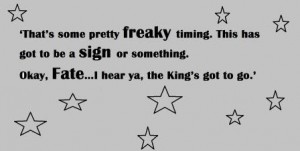
Typical ‘translation’.
Helpfully, the interpretation is printed alongside the original text, so it’s easy to see where subtle meanings have been lost and tackle them separately. My concern would be the change in tone, but selective use could really benefit students’ understanding, in the same way as watching a performance or a film does. I’ll leave you with this passage which I think works particularly well to draw out meaning that should be easy to spot but isn’t if you’re already a bit tired, a bit bored of concentrating on Shakespearian language, or just distracted by wondering how long it is ’til lunch.
Macbeth: ‘Oh, I’ve just learned that Duncan’s sons have arrived in England and Ireland. They deny they were behind their father’s murder, and say I murdered Duncan to become King! And that I’ll kill anyone in line to inherit the throne! Isn’t that ridiculous?
Hey, is Fleance going riding with you?’
Banquo: ‘My son, Fleance, who was prophesised to be King someday? Yup, he’s coming. Why?’
Macbeth: ‘No reason, no reason at all…just wondering. Well, you’d better get going.’
Written like that, it kind of makes you wonder why Banquo still rode off into the forest. Candidate for a Darwin Award perhaps?
Piqued because ‘Macbeth’ isn’t your favourite Shakespeare play but you quite like the concept? Have no fear, it’s part of a series…
- The world’s greatest romance…now a comedy?
- Has ‘Hamlet’ been hammed-up?
Have you come across any of these? What do you think of the idea? Helpful addition to Shakespearian study and theatrical performance or pointless addition to an astonishing heap of ‘helpful’ supporting texts?
‘Shakespeare for Slackers’,
Aaron Kite and Audrey Evans,
Five Rivers Publishing, 2015, ebook
Thanks to Librarything Early Reviewers for providing me with a free copy of this ebook in exchange for an honest review.
* Although I sometimes think returning to the classroom might be far more restful than staying home with two under threes!
** You might think horror is too strong a word. I don’t. I do think I need to get out more…
